3 Ways to Improve Your Training Programs with Cognitive Learning Theory Tools
BizLibrary
FEBRUARY 21, 2024
What is Cognitive Learning Theory? Cognitive learning theory (CLT) is a psychological perspective focused on the way our brains learn best.
This site uses cookies to improve your experience. By viewing our content, you are accepting the use of cookies. To help us insure we adhere to various privacy regulations, please select your country/region of residence. If you do not select a country we will assume you are from the United States. View our privacy policy and terms of use.

BizLibrary
FEBRUARY 21, 2024
What is Cognitive Learning Theory? Cognitive learning theory (CLT) is a psychological perspective focused on the way our brains learn best.
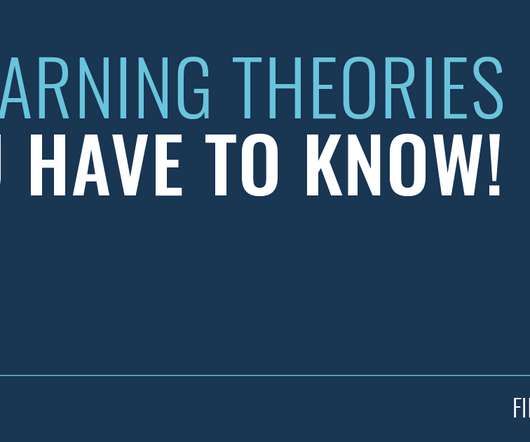
Growth Engineering
MAY 6, 2021
Like with fingerprints, our brains are all unique. This is why there are a number of different ways we learn, leading to learning theories. Here we will focus on the five most commonly used learning theories and how they should affect your learning and development programmes.
This site is protected by reCAPTCHA and the Google Privacy Policy and Terms of Service apply.

E-Learning Provocateur
JANUARY 12, 2010
Academia is teeming with learning theories. It can be quite a challenge for the modern learning professional to identify an appropriate learning theory, draw practical ideas from it, and apply it to their daily work. Which theory do you choose? How does it relate to other theories? Where do you start?

LearnUpon
APRIL 25, 2019
Adult Learning Theory, also known as a ndragogy is a concept that has been around for years. It highlights the distinct ways adults best respond to learning and it’s a must-know for any training provider. What is Adult Learning Theory? Over the years, the theory has been adapted and added to.

Advertisement
Cognitive science theories already supply the answers. Learn how OttoLearn packages them into a single platform you can use to deliver microlearning based reinforcement training, and go beyond completions to focus on outcomes. Learner engagement and retention doesn’t have to be a mystery.

Matrix
APRIL 22, 2021
Lately, I’ve seen a lot of the focus moving towards technology rather than learning itself. While trainers have to preferably keep up with the latest developments and trends, there is a lot to be saiz about adult learning and how it applies to successful L&D interventions. The relevance of adult learning theories.

Dashe & Thomson
JANUARY 11, 2011
The era of “left brain” dominance, and the Information Age that it engendered, are giving way to a new world in which “right brain” qualities-inventiveness, empathy, meaning-predominate. I’ve often wondered what all this right-brained thinking means for the learning industry. Good content. Properly d.

Dashe & Thomson
JANUARY 21, 2011
According to Urban Dictionary: Your exobrain (or exo-brain) is your extended brainpower from the information you have access to from your computer or the web. Web-based learning portals are the ultimate brain food — extending brain power by positioning learning and How-To reference material close to the job, 24/7.

Dashe & Thomson
FEBRUARY 22, 2010
Social Learning Blog Training and Performance Improvement in the Real World Home About Bios Subscribe to RSS Using Wikis to Stop Brain Drain by Jolene on February 23, 2010 in Wikis In his December Training Magazine article Training in a Web 2.0 Im a problem-solver and thoroughly enjoy helping clients succeed and look good. Properly d.

Matrix
APRIL 27, 2021
The theory of transformative learning has been developed by Jack Mezirow. The process of transformative learning. Faced with new challenges on the horizon, L&D professionals have to keep up with the latest adult learning theories. Instead, they search for different perspectives to make sense of change.

LearnUpon
AUGUST 27, 2019
Creating a comprehensive learning and development program in your organization is crucial. There are lots of learning theories out there, but they are not a one size fits all thing. There are lots of learning theories out there, but they are not a one size fits all thing. Behaviorist Learning Theory .
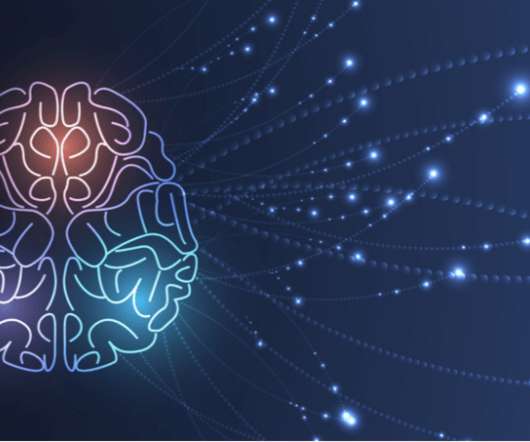
eLearning Industry
DECEMBER 24, 2020
Corporate training or corporate L&D (Learning and Development) is all about getting employees to acquire, retain, recall, and apply knowledge and skills in order to render them productive, which in turn helps the company grow and flourish. This post was first published on eLearning Industry.

Maestro
JUNE 15, 2023
Andragogy, which means man-leading in Greek, is the study of adult learning. Its conception as a term comes from Alexander Kapp, a German educator, who created the term in 1833 as a means of developing learning strategies focused on adults. This may work to teach a child their ABCs, but adults are not like children.

Dashe & Thomson
FEBRUARY 22, 2010
Social Learning Blog Training and Performance Improvement in the Real World Home About Bios Subscribe to RSS Using Wikis to Stop Brain Drain by Jolene on February 23, 2010 in Wikis In his December Training Magazine article Training in a Web 2.0 Im a problem-solver and thoroughly enjoy helping clients succeed and look good. Properly d.

Dashe & Thomson
FEBRUARY 4, 2014
Instructional Designers often strive to develop training material that is concise and easily digested by the target learners. Learning Style Theory Cognitive Strain CRT elearning instructional design Learning Theory' They also strive to create assessments and questions that are valid, clear, and direct.

Ed App
SEPTEMBER 27, 2021
Getting a clear grasp of different training theories will allow you to build more meaningful content and more effective training programs for your employees. Here, you’ll find a quick rundown of 10 training theories, emphasizing their key concepts and how you can apply them to achieve your training objectives. Read on to learn more.

Dashe & Thomson
APRIL 6, 2011
Oddly enough, however, it’s a rare day when you hear people say “I learn so much better when my brain is trying to do two things at once.” Whether you are reading or listening, you’re also being distracted by the option your brain is not trying to pay attention to. Why don’t we hear that? Because it’s not true. Properly d.

Learningtogo
JANUARY 12, 2017
Hi Everyone, As our species developed, we were never the fastest or strongest, so we learned how to take care of each other and become hard-wired for social interaction. Psychologist Albert Banderra’s Social Learning Theory recognized that we learn best in a group or community setting.

Dashe & Thomson
MARCH 27, 2011
I found out that Accelerated Learning originated with a theory called “suggestopedia,” developed by a Bulgarian educator named Georgi Lazanov. His methodology encouraged positive engagement with learning using a wide variety of techniques that included art and music. Each student selected the group they wanted to be in.

Learningtogo
DECEMBER 13, 2022
As serious as this problem is for talent development leaders, the education sector has been suffering its own talent drain, beginning before the pandemic turned the world upside down. Let’s focus on this opportunity and figure out how to best develop all this new talent coming our way. But maybe we should.

KnowledgeOne
JULY 7, 2022
Note that the nervous system includes our fascinating brain. In terms of the field’s history, we are most familiar with its advances in the 1990s, when the advent of functional magnetic resonance imaging (fMRI) shed new light on the functioning of the brain, allowing live and safe visualization of its structure and function.

HexaLearn
JANUARY 17, 2024
Evolving Minds In this article, we’re about to embark on a journey to unveil the fascinating ways psychology shapes Learning Management Systems (LMSs) and custom eLearning development for effectiveness and enjoyment. Building On Learning Theories Learning theories serve as guiding stars in eLearning.

Dashe & Thomson
JANUARY 14, 2011
Start a page for each learning topic and add draft learning objectives and content. The SME can then visit the site when they have time and do a structured brain-dump. That way you learn as your SMEs learn. Set up a Web-based content collaboration site (wikis work great for this). Properly d.

Dashe & Thomson
JANUARY 14, 2011
Start a page for each learning topic and add draft learning objectives and content. The SME can then visit the site when they have time and do a structured brain-dump. That way you learn as your SMEs learn. Set up a Web-based content collaboration site (wikis work great for this). Properly d.
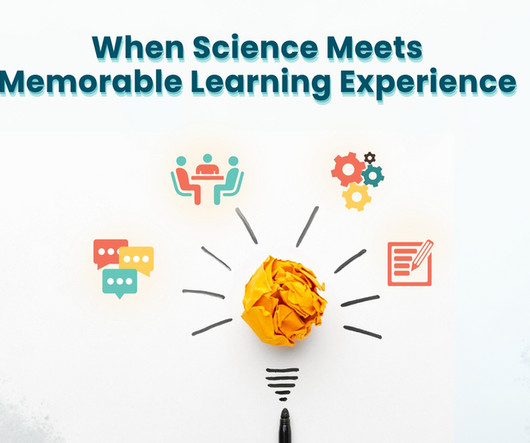
Thinkdom
FEBRUARY 29, 2024
As an L&D Manager, how frequently do you initiate new learning programs for your team? And perhaps more importantly, how often do you conduct review sessions for previous learning & development initiatives? So, how does one put that into practice while developing training modules?

Dashe & Thomson
JANUARY 25, 2011
Even with the help of the newest technology tools to communicate and educate including social media, wikis, and Google, we still need to transform our ILT classrooms and training sessions into integrated blended learning environments. So how do you keep it real? Move from being a teacher to facilitator. Enjoy people; embrace life! Properly d.

Dashe & Thomson
APRIL 21, 2011
This shift in leadership style can be characterized as moving from the “Do as I say&# leader to the “Let’s work together to find the best solution&# leader. Properly d.

Dashe & Thomson
JANUARY 7, 2011
Terrence talks of the promise Facebook shows as a tool for developing training, specifically in its role as an LMS (Learning Management System). There are whiteboard apps you can add for synchronous learning. There’s also an app that lets you develop and exhibit eCourses and track the learning experience in real-time.

Dashe & Thomson
JANUARY 7, 2011
Terrence talks of the promise Facebook shows as a tool for developing training, specifically in its role as an LMS (Learning Management System). There are whiteboard apps you can add for synchronous learning. There’s also an app that lets you develop and exhibit eCourses and track the learning experience in real-time.

Dashe & Thomson
JANUARY 19, 2011
When Im not busy helping to change the face of corporate learning, I like to train with the Dashe & Thomson company bike team, travel and read. Properly d.

CLO Magazine
APRIL 16, 2021
I have used teaching innovations that I discovered in my 20-plus years as a college instructor that have helped make me stronger as a learning and development professional. I’ve learned that college students and professionals have a common learning goal: managing wicked problems. Teaching is just talking, right?

Dashe & Thomson
APRIL 12, 2011
Brain Rules for Learning: Who Knew? I live and breathe Minnesota sports and love golfing, boating, skiing, traveling, and attending live music. View all posts by Paul → ← Do Instructional Designers in the Social Digital Age need an Engineering Background? We All Did. Properly d.
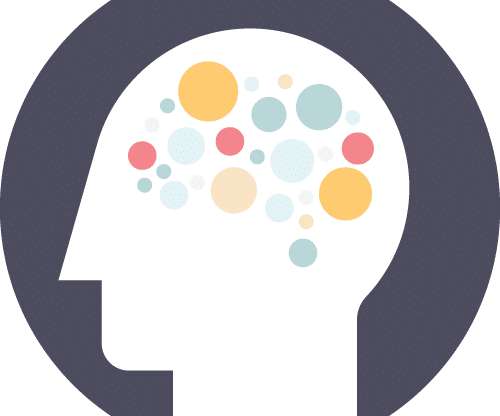
eLearningMind
NOVEMBER 10, 2022
Instead, Neurolearning is a combination of learning theory and neuroscience; a complicated study of how the brain (and the nervous system) works and reacts to stimuli and situations. For our purposes, Neurolearning helps us understand the way individuals learn and how to turn material into memories for later retention.

Dashe & Thomson
JANUARY 19, 2011
When Im not busy helping to change the face of corporate learning, I like to train with the Dashe & Thomson company bike team, travel and read. Properly d.

Dashe & Thomson
APRIL 17, 2011
But, of course, you actually do need to develop an evaluation for this level. He recommends developing the Level 4 evaluation in a way that top management would find meaningful. Organizations such as PACT, ASTD, MNISPI, and the Digital Learning Forum get my creative juices going to generate new ideas and synergies. We All Did.

The Logical Blog by IconLogic
JANUARY 9, 2013
These timed patterns formed the basis for a 2008 book by Paul Kelley called Making Minds , in which Kelley used the information reported by Fields to develop and test what he called the Spaced Learning. The general idea of Spaced Learning is that large amounts of. part of the brain. with together in one big chunk.

STRIVR
DECEMBER 5, 2023
Interactive training methods force the learner to use not just their brain but their bodies, hands, and eyes. This sort of “embodied” learning quickly builds stronger neural pathways in the brain, cementing the information so that it becomes instinctual.

Integrated Learnings
AUGUST 6, 2013
If you haven’t encountered it lately, it’s possible you’ve forgotten about the recency theory of learning. Since the information entering at the end doesn''t get pushed out as quickly, the brain has more time to process and remember the later stuff. Social accountability. We hope you found this post helpful.

Zipboard
AUGUST 1, 2018
These macro factors influence smaller, yet critical decisions for the design and development of the eLearning project. What learning theory would serve the project’s needs best? Instructional Design Strategy - Free ebook for download - zipBoard What Learning Theory Are You Using?
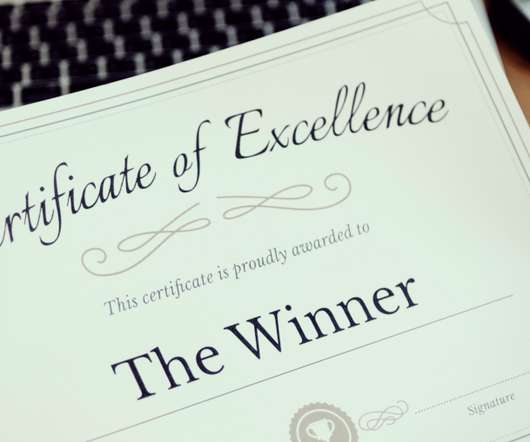
Matrix
AUGUST 10, 2021
By exploring these options, you can support a workforce dedicated to continuous learning. However, the key thing to keep in mind is that the digital landscape offers just about anything you could want from a developing workforce, all with ease and simplicity. As a result, you’ll gain a resource for tracking employee development.

Saffron Interactive
JULY 13, 2023
This is leaving many professionals turning to learning trends to deliver a strategy that enables agile and adaptable employees, whilst arming them with the skills they need now and tomorrow. Budgets are tight and timelines are short, yet the demands from the C-Suite on learning and development continue to grow.

Ed App
SEPTEMBER 4, 2019
There have been a number of learning theories that have been propounded in order to explain how learning takes place, and all of them have some takers. While some are accepted by a large number of professionals in the field of learning and development, others are not. Sometimes theories becomes obsolete with time.

eLearningMind
DECEMBER 19, 2022
This journey elicits an Angel’s Cocktail of chemicals in your learner’s brains—dopamine, oxytocin, and endorphins—making the learning more meaningful and engaging. Storytelling is so effective because it “tricks” the brain into absorbing new information by decreasing its cognitive load and increasing retention.

E-Learning Provocateur
DECEMBER 28, 2008
So after several hours of unenlightened googling, I decided to bite the bullet, go back to first principles and read George Siemens’ seminal paper, Connectivism: A Learning Theory for the Digital Age. According to Chaos Theory , everything is connected, as illustrated so eloquently by the Butterfly Effect.
Expert insights. Personalized for you.
Are you sure you want to cancel your subscriptions?


Let's personalize your content